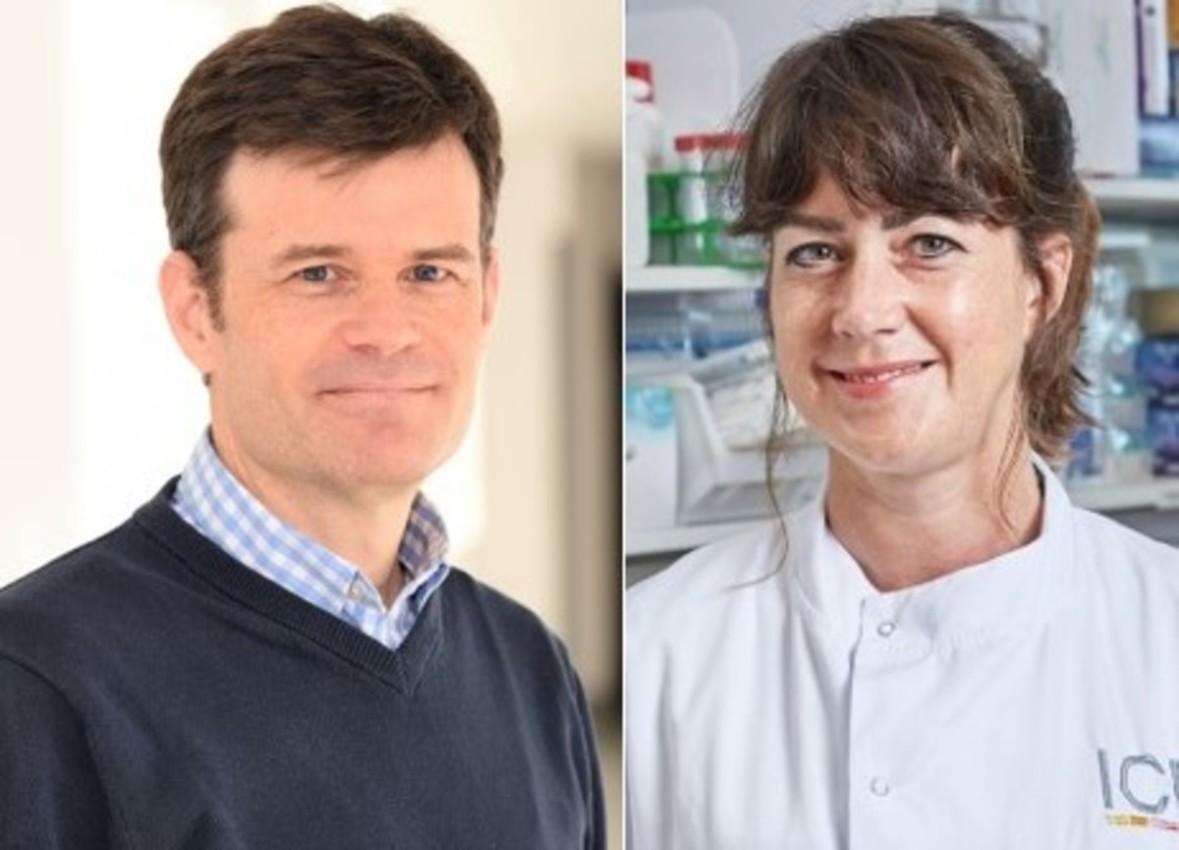 Drs. David Adams and Clare Turnbull
Drs. David Adams and Clare Turnbull
EDITOR’S NOTE: Drs. Clare Turnbull of The Institute of Cancer Research in the UK and David Adams of the Wellcome Sanger Institute in the UK serve on the Scientific Program Committee for the 2023 Mutational Scanning Symposium, July 13 and 14. Here, they are share insights and observations about the meeting. [https://coursesandconferences.wellcomeconnectingscience.org/event/mutational-scanning-symposium-20230713/]
What are you most excited about for this 6th annual Mutational Scanning Symposium and how would you define success for the event?
Dr. Turnbull: I'm especially excited about the sessions focusing on clinical validation and implementation of functional assays. To me this is the key hurdle for us in deriving medical utility from these technically astounding assays.
Dr. Adams: For the first time the mutational scanning meeting will be held in Europe - the MSS 2023 meeting will bring together the vibrant and growing community of people who aim to understand how genetic variation influences disease and help patients and their families get better treatments. Success for MSS 2023, in my view, will be defined by the many new collaborations that will form from chance meetings, and the renewed energy of the community to keep working toward our collective goal of reducing the burden of genetic disease. I also hope that the meeting will provide a platform for our junior scientists to showcase their work to leaders in the field.
How close is the medical profession to incorporating findings from studies on genome science into clinical practice on a regular basis? What will it take to “close this gap?”
Dr. Turnbull: The clinical diagnostic community is already utilizing outputs from functional assays within clinical classifications. We have done this for decades, but historical assays were often limited to a handful of variants and lacked data on quality and reproducibility. Going forward, we need to ensure that we use these data in an evidence-based, quantitative, and consistent fashion, deriving optimal value without tripping over pitfalls. To this end we are holding a workshop bridging the Mutational Scanning Symposium with the preceding meeting, “Curating the Clinical Genome.” This will be bringing together clinicians and diagnostic scientists thinking about these challenges. Together, we hope to thrash out issues around quantitation of evidence, standards for truth sets, and how to combine data from different assays. We need clear consensus guidance that is ratified internationally by clinical diagnostic users.
Dr. Adams: Some mutational scanning data, such as the work on BRCA1 of BBI’s Lea Starita, as well as Greg Findlay, who was originally from the University of Washington, is used as part of algorithms for clinical decision-making. The mutational scanning community needs to work together to build further high-quality maps of gene function and to make it easy for clinicians to use and understand these data. High quality, high data standards, and free data release will all be important to achieve this goal. This is the agenda of the Atlas of variant Effects Alliance, the organization/community that the MSS meeting brings together. At the MSS 2023 meeting all the leaders in the field will be in the same room; this is a very important time for all us.
The theme of the 2023 symposium is “Bringing function to the genome.” What does that phrase mean to you?
Dr. Turnbull: This to me reflects that the functional consequences of a variant are key to our understanding of its clinical consequences, risk, and therapeutic implications.
Dr. Adams: Sequencing genomes is now relatively routine. As hundreds of thousands of genomes have accumulated, it has become clear that all of us carry variation – changes in our genome that are unique to us or our families. This is, of course what makes us all fabulously unique, but in the same way in some cases can lead to disease. The challenge is: Which of these rare variants are disease-causing and which are not. By bringing function to the genome, we can answer this question.


